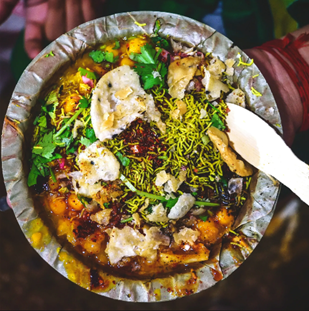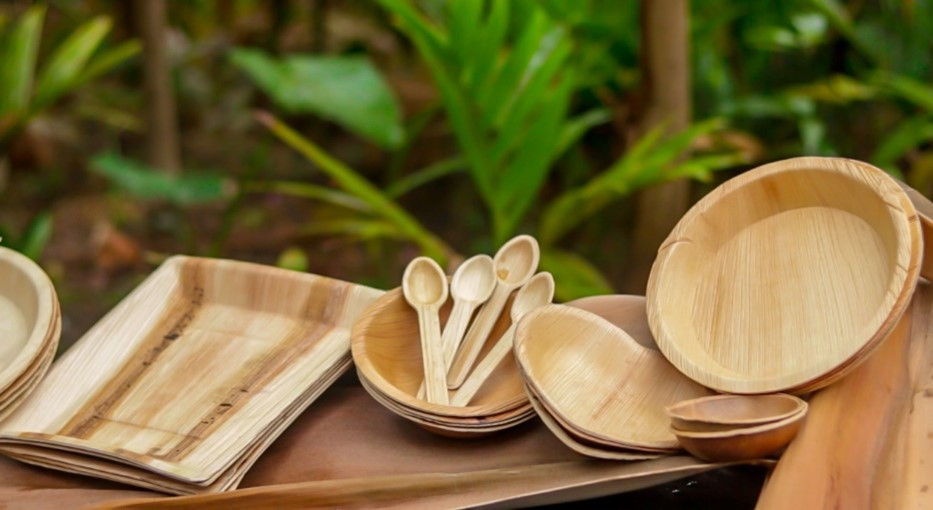Crafting Sustainable Lifestyles Through Cultural Diversity
- Zannat Ara Dilshad Shangi
- May 9, 2024
- 2 min read
(Written By: Zannat Ara Dilshad Shangi)
Echoing through the bustling streets of South and Southeast Asia, from the vibrant markets of India to the colorful alleys of Nepal, the winding alleys of Bangladesh, the aromatic stalls of Thailand, the lively avenues of Cambodia, the tranquil paths of Laos, and beyond, an age-old quiet tradition speaks volumes about the enduring strength and resilience of diverse cultures across the region. Here, amidst the vibrant tapestry of the urban symphony, lies a practice that not only tantalizes taste buds but also champions sustainability.
Unveiling The Leaf as Utensil:
In the leafy realm of culinary tradition, tree leaves serve as versatile plates, bowls, and utensils for grand feasts and humble street fare. Rooted in cultural heritage and religious significance, these natural, biodegradable materials—from banana, sal, teak, to lotus leaves—imbue dishes with unique flavors and aromas while minimizing waste.


Left to Right: © Tathagata Deb/EyeEm (Source: https://www.cntraveller.in/story/best-streetfood-kolkata-west-bengal-for-under-50-rupees/); © B. M. Enterprise (Source: https://www.indiamart.com/proddetail/8-5-inches-sal-leaf-plate-22543796773.html)
This practice isn't merely about sustainability; it reflects a harmonious blend of deep-rooted cultural wisdom and modern environmental concerns. By eschewing plastic for generations, communities have embraced these leafy vessels, weaving them into their daily lives and festive celebrations. It's not just about dining; it’s a nod to tradition, about fostering a sustainable relationship between people, nature, and the nourishing food that sustains us.

© Dethan Punalur/Getty Images (Source: https://www.thespruceeats.com/cooking-with-banana-leaf-3217239)
As the world grapples with the plastic crisis, leafy alternatives emerge as rays of hope. Amidst the chatter and aroma of local delicacies, a quiet revolution replaces plastic with leaves. By using these natural substitutes, communities reduce waste and lessen their environmental footprint—a small yet significant step towards a greener planet. Each meal served on a leaf sends a message and commitment to nurture the environment.
From Tradition to Community Empowerment:
Beyond environmental benefits, this cultural practice holds economic promise, fostering social sustainability. By promoting locally sourced, biodegradable alternatives, communities create avenues for employment. From skilled leaf harvesters to artisans crafting intricate leaf ware, individuals, particularly women, are empowered to play crucial roles in the cycle of sustainability, contributing to community resilience and inclusive economic growth.


© Leafplus Pvt. Ltd. (Source: https://leafplus.com.np/product/)
A Call to Sustainable Mindsets:
From indigenous knowledge to innovative approaches, the road to a greener tomorrow holds boundless potential. Imagine bright minds, NGOs, and entrepreneurs spearheading a global shift in large events, replacing disposable plastics with innovative alternatives, spawning eco-conscious businesses, and reducing plastic waste worldwide.
Within the delicacies of cultural diversity, sustainability is intricately intertwined with tradition, innovation, and reverence for nature. As we journey through lands where tree leaves become vessels of sustenance and symbols of heritage, let us embrace the lessons they impart. In the humble leaf, we discover not just a plate but a pathway to a more harmonious relationship with the planet. As we savor the flavors of this leafy revolution, let's ask: What hidden gems lie within the folds of cultural diversity, waiting to shape a sustainable legacy for generations to come?




Comments